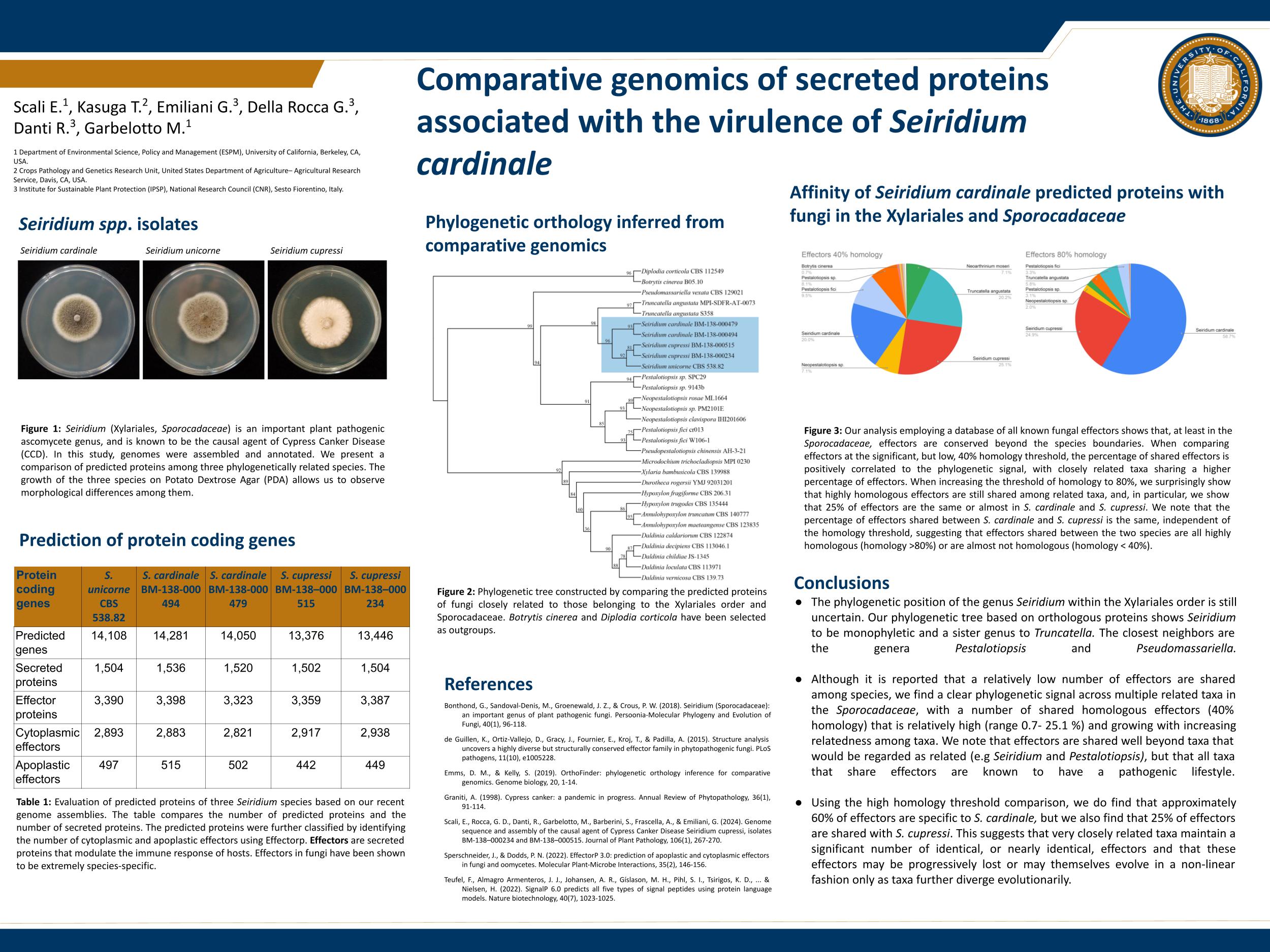Poster: Comparative genomics of secreted proteins associated with the virulence of Seiridium cardinale
Date:
Cypress Canker Disease (CCD) is caused by Ascomycetes belonging to the genus Seiridium. CCD occurs mainly on Cupressaceae and causes bark necrotic lesions. Nevertheless, some Seiridium species can cause bark cankers on Angiosperms. Given the wide geographical distribution of CCD, it is considered a remarkable example of a tree pandemic and it offers an excellent case study for host-pathogen interactions.

Despite the successful selection of resistance in Cupressus semperviens genotypes, genomics and host-pathogens molecular interactions have never been investigated. In this study, we focused on the genomics and gene expression of the pathogen Seiridium cardinale. We hypothesized that the effectors produced by S. cardinale undergo a differential regulation during the infection cycle. We further hypothesized that effectors and secreted proteins of S. cardinale may have unique features associated with high pathogenicity when compared to mildly pathogenic and saprophytic phylogenetically related taxa. In order to test these hypotheses, we first developed a reference genome for S. cardinale, and produced dual-RNA interaction data of C. semperviens infected with S. cardinale. We also isolated in vitro RNA of S. cardinale and compared it with in vivo gene expression. In addition, we conducted full-length cDNA sequencing of inoculated plant tissues, and identified alternative splicing in S. cardinale. Together, our data support the hypothesis that S. cardinale undergoes a differential gene expression and possibly differential alternative splicing when it is interacting with the host C. semperviens. We then compared effectors and secreted proteins of S. cardinale with those of other plant-pathogenic fungi and of saprobic fungal species. Finally, we evaluated the phylogenetic distribution of orthologous proteins at genus and class level. Comparative genomics showed that the majority of Seiridium effectors and secreted proteins are conserved amongst Sordariomycetes plant pathogens. Nevertheless, we found a set of proteins unique to S. cardinale. The results represent the basis for our future work comparing dual host-pathogen transcriptomes in resistant and susceptible cypress genotypes.
